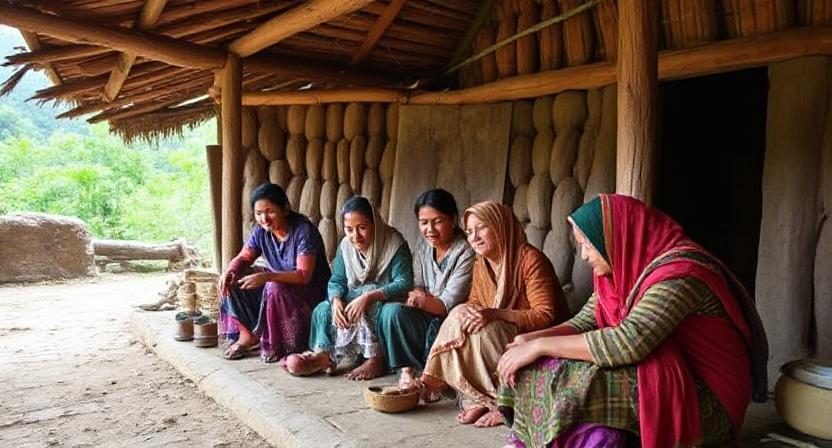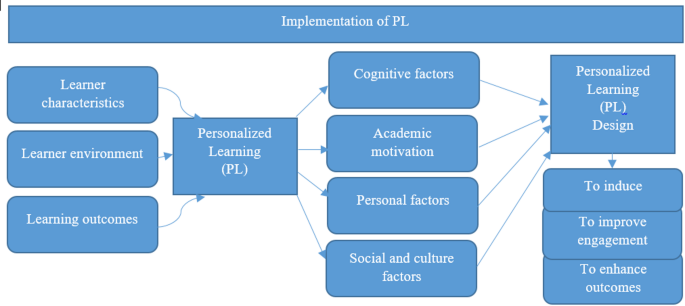Report on UN Tourism’s Online Courses for Sustainable Rural Development
Introduction: Fostering Sustainable Development through Education
A new initiative by UN Tourism introduces Massive Open Online Courses (MOOCs) designed to promote sustainable, inclusive, and community-led tourism development in rural destinations. This program directly supports the achievement of the United Nations’ Sustainable Development Goals (SDGs) by providing accessible education and practical tools to empower rural communities globally. The initiative aims to transform the tourism potential of rural areas into a vehicle for economic growth, cultural preservation, and environmental stewardship.
Course Framework and Accessibility
The courses are offered under the “Tourism for Rural Development Programme” via the UN Tourism Online Academy. The educational framework is designed for maximum accessibility and impact, contributing to SDG 4 (Quality Education) by offering free and inclusive learning opportunities.
- Product Development and Marketing for Rural Areas: This course focuses on creating and promoting authentic tourism products that reflect community values.
- Design Thinking for Rural Tourism Development: This course applies human-centered design principles to foster innovative and sustainable tourism solutions co-created with local stakeholders.
- Accessibility: The courses are free of charge and available year-round.
- Languages: Content is provided in both English and Spanish.
- Delivery: A flexible, self-paced online model allows global participation.
Direct Contributions to Sustainable Development Goals (SDGs)
The program is strategically aligned with several key SDGs, positioning rural tourism as a catalyst for sustainable development.
- SDG 8 (Decent Work and Economic Growth): By equipping local entrepreneurs and communities with practical skills, the courses aim to create new jobs and sustainable economic opportunities, improving livelihoods in rural regions.
- SDG 11 (Sustainable Cities and Communities): The emphasis on community-led development empowers local populations to protect and safeguard their cultural and natural heritage (Target 11.4) while building resilient and inclusive local economies.
- SDG 10 (Reduced Inequalities): The initiative seeks to reduce economic disparities by providing rural areas with the tools to develop their tourism sectors, ensuring that benefits are distributed equitably within the community.
- SDG 12 (Responsible Consumption and Production): The curriculum promotes sustainable tourism practices that preserve the environment, protect local traditions, and minimize the negative impacts associated with mass tourism.
Strategic Course Content for SDG Implementation
Product Development and Marketing
This course provides participants with the tools to build tourism products that are both economically viable and culturally sustainable, directly supporting SDG 8 and SDG 11.
- Building stakeholder engagement within the community.
- Crafting compelling tourism narratives based on authentic local assets.
- Developing marketing strategies that resonate with global and local audiences while respecting community identity.
Design Thinking for Rural Tourism
This module introduces a collaborative approach to tourism planning, ensuring that development is sustainable and meets the needs of the community, in line with SDG 11 and SDG 12.
- Utilizing empathy and co-creation to design tourism experiences.
- Applying tools for ideation, prototyping, and evaluation of sustainable tourism solutions.
- Fostering innovation that balances visitor expectations with community well-being and environmental preservation.
Global Application and Future Vision
The MOOCs incorporate global case studies and best practices, creating a framework for knowledge sharing that supports SDG 17 (Partnerships for the Goals). The target audience includes tourism entrepreneurs, destination managers, local officials, and students committed to sustainable development.
The long-term vision is to establish a global network of rural destinations capable of managing their tourism sectors sustainably. By democratizing access to specialized education, UN Tourism is empowering communities to design a future where tourism serves as a force for positive change, ensuring that economic benefits are shared and cultural and environmental assets are preserved for future generations.
Identified Sustainable Development Goals (SDGs)
SDG 4: Quality Education
- The article’s central theme is the launch of free Massive Open Online Courses (MOOCs) by UN Tourism. This initiative directly addresses the goal of providing inclusive and equitable quality education. The text highlights that the courses are “free,” “accessible to anyone, anywhere,” and offered through the “UN Tourism Online Academy,” aiming to “democratize access to tourism education.”
SDG 8: Decent Work and Economic Growth
- The initiative is explicitly designed to foster economic growth and create opportunities in rural areas. The article states that rural tourism “plays a vital role in creating economic opportunities and improving livelihoods” and can be a “game-changer, offering a path to economic growth.” The courses aim to empower communities to “harness the full potential of tourism,” leading to “economic benefits that are more widely distributed.”
SDG 11: Sustainable Cities and Communities
- Although focused on rural areas, the principles align with making communities inclusive, safe, resilient, and sustainable. The article emphasizes the “preservation of cultural heritage” and the protection of “local traditions.” The goal is to develop tourism in a way that allows communities to “capitalize on their unique cultural, environmental, and social assets” and “honor and celebrate their heritage,” which is a key component of sustainable community development.
SDG 17: Partnerships for the Goals
- The UN Tourism initiative represents a global partnership for sustainable development. It is a global effort to provide educational resources and build capacity worldwide. The article mentions the use of “global case studies and best practices” to share knowledge and create a “global network of people and communities dedicated to the sustainable development of rural tourism,” which embodies the spirit of international cooperation and knowledge sharing.
Specific SDG Targets Identified
SDG 4: Quality Education
- Target 4.4: By 2030, substantially increase the number of youth and adults who have relevant skills, including technical and vocational skills, for employment, decent jobs and entrepreneurship. The courses, “Product Development and Marketing for Rural Areas” and “Design Thinking for Rural Tourism Development,” are designed to equip “tourism entrepreneurs, destination managers, local officials, and even students” with “practical knowledge and strategies” needed for employment and business creation in the tourism sector.
- Target 4.7: By 2030, ensure that all learners acquire the knowledge and skills needed to promote sustainable development. The article explicitly states the courses promote “sustainable, inclusive, and community-led tourism development.” The content focuses on sustainability, empowering communities to “preserve the environment, protect local traditions, and reduce negative impacts.”
SDG 8: Decent Work and Economic Growth
- Target 8.9: By 2030, devise and implement policies to promote sustainable tourism that creates jobs and promotes local culture and products. The entire initiative is a direct implementation of this target. The courses teach participants how to “build and market rural tourism products” that are “authentic” and reflect the “values and identity of their community,” thereby promoting local culture and creating economic opportunities.
SDG 11: Sustainable Cities and Communities
- Target 11.4: Strengthen efforts to protect and safeguard the world’s cultural and natural heritage. The article emphasizes that the courses encourage communities to capitalize on their “unique cultural, environmental, and social assets.” It also notes that sustainable tourism helps in the “preservation of cultural heritage” and ensures that communities can “honor and celebrate their heritage.”
SDG 17: Partnerships for the Goals
- Target 17.9: Enhance international support for implementing effective and targeted capacity-building in developing countries. The MOOCs are a form of global capacity-building, providing “vital tools and knowledge” to individuals in “rural destinations worldwide.” The use of “global case studies” and making the courses available in “English and Spanish” demonstrates a targeted effort to share knowledge and build skills on an international scale.
Indicators for Measuring Progress
SDG 4: Quality Education
- Implied Indicator for Target 4.4: The number of individuals enrolled in and completing the MOOCs. The article mentions the courses are for a wide audience, including “entrepreneurs,” “managers,” “officials,” and “students.” Tracking enrollment and completion rates would measure the increase in adults with relevant vocational skills.
- Implied Indicator for Target 4.7: The curriculum and content of the courses themselves. The focus on “sustainable tourism,” “community-driven tourism,” and “preservation” serves as a direct measure of providing education for sustainable development.
SDG 8: Decent Work and Economic Growth
- Implied Indicator for Target 8.9: The number of new sustainable tourism products, businesses, or jobs created in rural areas by course participants. The article’s goal is to “transform rural destinations into thriving tourism hubs,” which implies a measurable increase in tourism-related economic activity.
SDG 11: Sustainable Cities and Communities
- Implied Indicator for Target 11.4: The number of tourism projects developed by participants that explicitly incorporate the safeguarding of local cultural and natural heritage. The emphasis on creating “authentic” experiences that “honor and celebrate” heritage suggests that the success of the program could be measured by the development of such projects.
SDG 17: Partnerships for the Goals
- Implied Indicator for Target 17.9: The geographic reach and diversity of participants in the MOOCs. The article notes the courses are available globally, and measuring the number of countries and communities represented by the learners would indicate the scale of this capacity-building initiative. The formation of the mentioned “global network” would also be a key indicator.
Summary of SDGs, Targets, and Indicators
| SDGs | Targets | Indicators |
|---|---|---|
| SDG 4: Quality Education |
|
|
| SDG 8: Decent Work and Economic Growth |
|
|
| SDG 11: Sustainable Cities and Communities |
|
|
| SDG 17: Partnerships for the Goals |
|
|
Source: travelandtourworld.com







